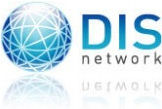However, Base32 encoding has the benefit to provide an encoding that is easy to handle "manually" by humans. I suggest to use Base32 encoding to provide a compact identifier encoding that users have to remember and may have to spell out to other people.
It is for this reason that I would prefer to use such Base32 encoding for the user identifiers key of a web service.
With 4 Base32 ASCII code value one can encode one number in a million. With 5 Base32 ASCII code, we can encode one value in 32 million and with 6 Base32 ASCII code we can encode one value in a billion. I can't wait for my users to have 5 or even 6 ASCII codes in their identifiers.
My proposed encoding is the same as the Crockford's Base32 alphabet with the difference that the letter U is preserved and the letter W is removed. I guess the letter U has been removed to avoid confusions with two 1 in sequence. But I find that removing the W is preferable because it is less convenient to memorize and spell out.
Note: with a Base64 encoding, only 5 Base64 ASCII codes a needed for one number in a billion, but the complexity to remember, spell out and distinguish upper and lower case letters makes it inefficient.


 RSS Feed
RSS Feed
